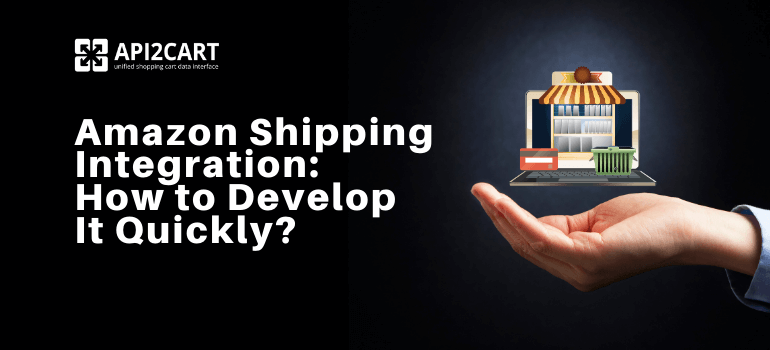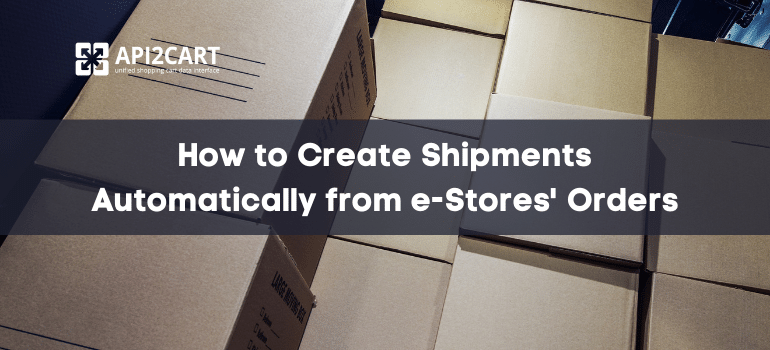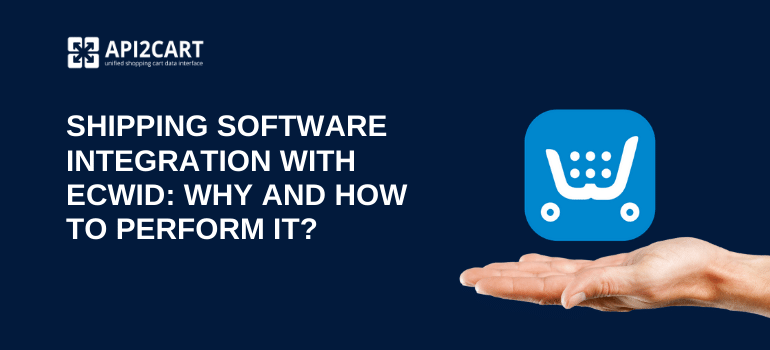
Shipping is an indispensable part of eCommerce and is very challenging to handle. In layman’s terms, shipping refers to the process of packing an ordered product into a box and sending it to the clients. But when it comes to the actual implementation, it is more than just packaging and transportation. It is a comprehensive process that involves order fulfillment, stock control, shipment monitoring, updating order statuses, and many more operations.
All of these operations can be done easily with the help of high-quality shipping management software. So, the e-retailers are searching for solutions that help them to automate their shipping processes.
If you are running a shipping management solution and want to propose it to a great number of e-retailer, than the integration with multiple shopping platforms is unavoidable for you.
In this article, we are going to explore all the details related to Ecwid shipping integration. We will discover the aspects of the development of connection with this shopping platform and analyze the benefits that it can bring.
The Importance of Shopping Platform Integration for Shipping Software Providers
Shopping platform integration helps shipping software providers improve their systems' efficiency by adding more functionality to it. For instance, Ecwid shipping integration and the development of connections with other similar platforms allow you to access all the needed data from stores based on them.
The integration with shopping platforms determines your system’s ability to automate e-retail processes. It allows your software to retrieve all the information about orders, products, and customers from the online stores. This information serves as the basis of your software’s operational and functional efficiency.
Below are some reasons why shopping platform integration is vital for shipping software providers like you. With its help, you can access and manage the data that allows performing of such functionality:
- automate, schedule, and customize shipping tasks
- update tracking information
- create shipments and update order statuses
- create shipping labels
- organize the data in detailed, up-to-date reports
Now, let’s take a closer look at developing the integration between your shipping software and Ecwid platform.
Aspects of Ecwid Integration for Shipping Solutions
Ecwid shipping integration can make your software more popular on the market and bring you more prospective clients.
Ecwid is one of the fastest-growing eCommerce platforms today with more than 687k merchants in 175 countries. The huge customer base and a vast international reach are commendable for your software solutions.
To put simply, Ecwid shipping integration has the following benefits for your business:
-
- You will get exposure to thousands of prospective clients from all over the world, with a golden chance to present your SaaS business to them. According to BuiltWith, Ecwid is highly popular in the United States (327,000 online stores are based on it). Also, it is used by e-retailers from the United Kingdom (82,000 stores), Germany (58,000 stores), Italy (56,000 stores) and France (42,000 stores).
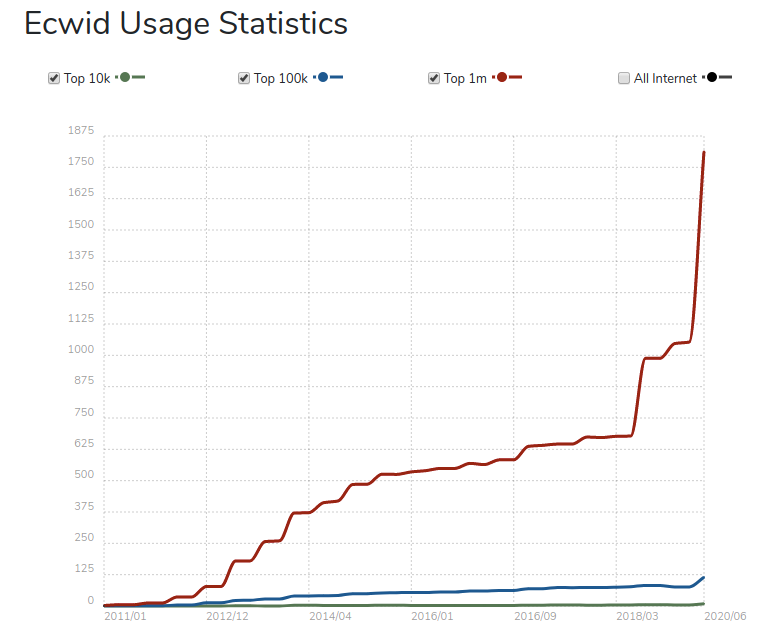
- More sales mean more profit. Ecwid shipping integration can boost your profit driving more customers of your software. The merchants selling on Ecwid may need your shipping software to ease their shipping management operations. Here’s how you will start getting more clients for your business.
- Most importantly, your shipping software and other SaaS solutions will be able to access all the necessary data from all the online stores on Ecwid. It may include order information, product details, customer’s information, shipment data, info on taxes, and much more than that.
However, Ecwid shipping integration isn’t that easy as it seems to be. Without a third-party solution like API2Cart, the integration with shopping platforms can cost you a fortune. There are three main reasons for this:
- The development of integration is expensive. If you multiply the cost of each with the total number of integrations, you won’t be able to bear the cost.
- Integrations are time-consuming and need highly skilled developers (with extra charges) to develop them. You can even miss out on the deadlines.
- Shopping platforms keep updating. That is why you will need to upgrade your integration whenever new changes appear.
Hence, third-party services like API2Cart can be your savior. Let’s see how!
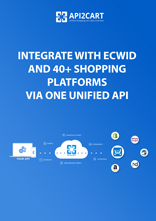
Ecwid API Integration Development
Explore how Ecwid integration can help your business become more competitive. You can also check out How to Set Up Shipping Integration with Ecwid Using API2Cart.
How to Get Started with Ecwid Integration?
Ecwid shipping integration is a painless process with API2Cart. Our unified API helps you to overcome all the challenges related to shipping software integration with multiple shopping platforms like Ecwid.
With our API, you can integrate your software solutions with more than 60 shopping platforms and marketplaces in one go. No separate connections and no hidden charges - you will get your integrations ready after the integration with API2Cart.
The development of Ecwid shipping integration with the help of API2Cart allows you to:
- import orders from multiple sales channels into your shipping software automatically
- update tracking info and order statuses
- create shipping labels
- create detailed reports for your clients that help them to monitor their shipping operations
API2Cart supports the following API methods for Ecwid:
- for working with products: product.list, product.count, product.info, product.find
- for working with categories: category.list, category.count, category.info
- for working with orders: order.count, order.list, order.info
- for working with customers: customer.list, customer.count, customer.info
Ecwid shipping integration is even more beneficial than what we have stated here. The only condition - you need commendable third-party services like API2Cart to fulfill your needs. It will be a streamlined experience for you as well as your clients.
Moreover, we also provide a 14-day free trial service for our clients. That means, if you want to try our software, you can do it easily, simply registering your free API2Cart account. To know more about how our service works, schedule a quick consultation with our manager. We would be more than happy to assist you.
